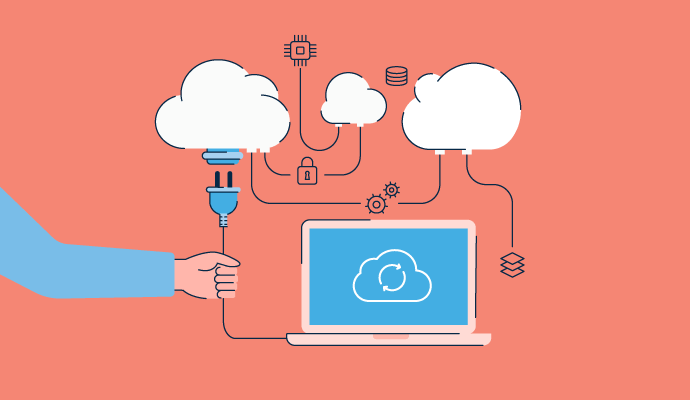In the quickly developing universe of innovation, distributed computing has arisen as a distinct advantage, changing the manner in which organizations and people make due, store, and access information and applications. At the core of distributed computing are cloud servers, virtualized cases that offer a variety of benefits over customary actual servers. Understanding the idea of cloud servers and their advantages is pivotal in saddling the force of this progressive innovation.
What are Cloud Servers? Cloud servers, otherwise called virtual confidential servers (VPS), are virtualized cases of actual servers that disagreement a distributed computing climate. These examples can be provisioned on-request, offering versatility, adaptability, and cost-adequacy. Cloud servers work autonomously, permitting clients to tweak their server climate while imparting actual equipment assets to other virtual servers.
Benefits of Cloud Servers:
1. Adaptability: Cloud servers can be effectively increased or down in light of interest. This adaptability is especially significant for organizations encountering fluctuating traffic designs.
2. Cost-Effectiveness: Dissimilar to conventional actual servers that require critical forthright speculations, cloud servers work on a pay-more only as costs arise model, permitting organizations to just compensation for the assets they use.
3. Unwavering quality: Cloud servers are based on repetitive framework, guaranteeing high accessibility and limiting free time because of equipment disappointments.
4. Execution: Many cloud suppliers offer elite execution equipment choices, guaranteeing that applications run as expected and load rapidly.
5. Worldwide Openness: Cloud servers can be gotten to from anyplace with a web association, making them ideal for remote work and cooperation.
6. Catastrophe Recuperation: Cloud servers work with simple reinforcement and fiasco recuperation, guaranteeing information is safeguarded and can be immediately reestablished if there should arise an occurrence of crises.
7. Security: Cloud suppliers frequently carry out vigorous safety efforts, including information encryption, firewalls, and interruption location frameworks.
Exploring Cloud Server Reception:
1. Picking a Supplier: Select a trustworthy cloud specialist co-op in view of variables like unwavering quality, security, evaluating, and accessible highlights.
2. Asset Arranging: Survey your asset prerequisites to pick the proper cloud server setup. Consider factors like computer chip, Slam, stockpiling, and transmission capacity.
3. Information Relocation: Plan the movement of your applications and information to the cloud cautiously to limit interruptions and information misfortune.
4. Checking and The board: Execute observing devices to monitor server execution, and use the executives interfaces given by the cloud supplier.
5. Safety efforts: Carry out security best works on, major areas of strength for including controls, information encryption, and normal security reviews.
6. Cost Administration: Monitor your asset utilization and streamline your server designs to actually oversee costs.
All in all, cloud servers have altered the manner in which organizations and people approach figuring. By understanding their benefits and embracing best practices, associations can use the force of distributed computing to improve versatility, proficiency, and generally functional abilities.
